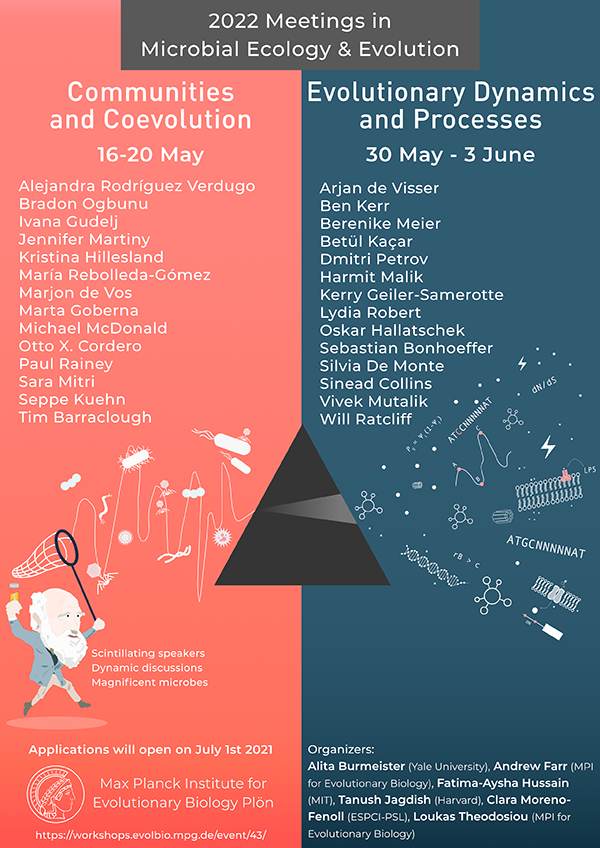Speaker
Description
Microbes affect global nutrient cycles, the development of our immune system, and resource acquisition and stress responses of multicellular organisms. In a rapidly changing world, we would like to predict the ecological and evolutionary trajectories of populations and communities. Recent efforts have shown that microbial community assembly is often fairly predictable at a functional level, and that this predictibility can emerge from simple metabolic contraints. However, even in simple systems, with strong selection and a simplified ecology, evolutionary change can increase ecological complexity leading to distinct outcomes. Here, we present the results of a year-long evolutionary experiment with twelve replicate lines evolving from the same simple community self-assembled in minimal media with glucose as the only carbon source. We find that community assembly is robust to evolutionary change, despite changes in phenotypes of comprising species. In this system, selection for faster growth rate and increased metabolic efficiency affects the emergent metabolic structure of our communities in a reproducible and therefore predictable manner.

